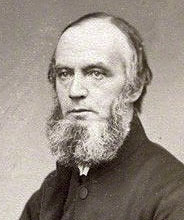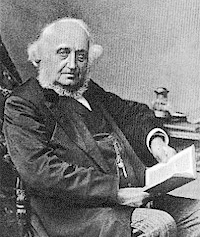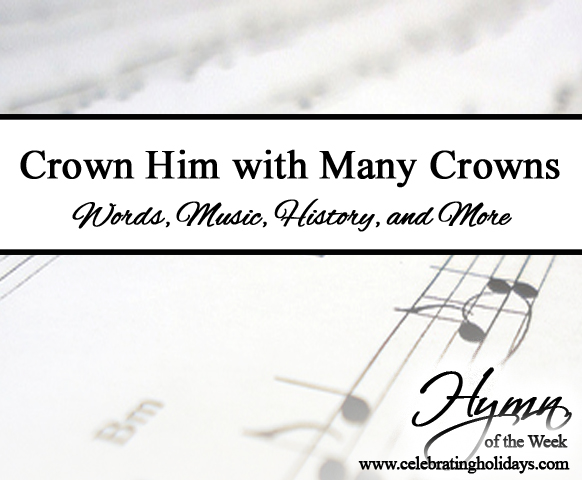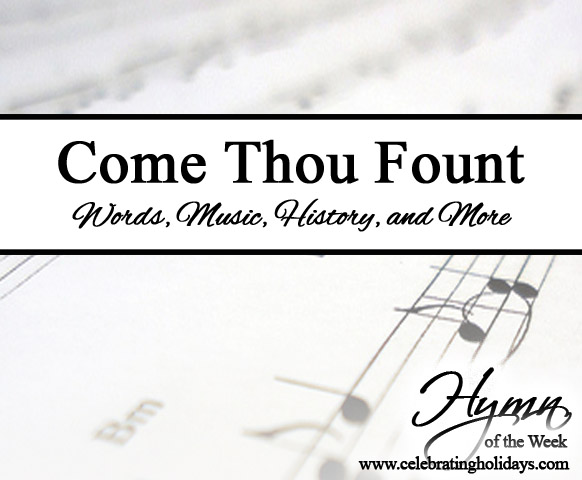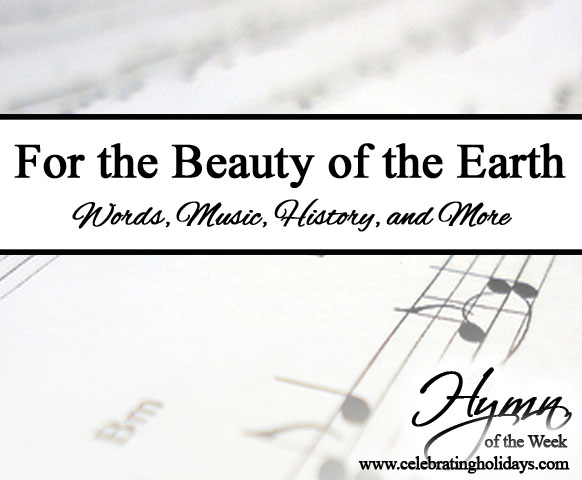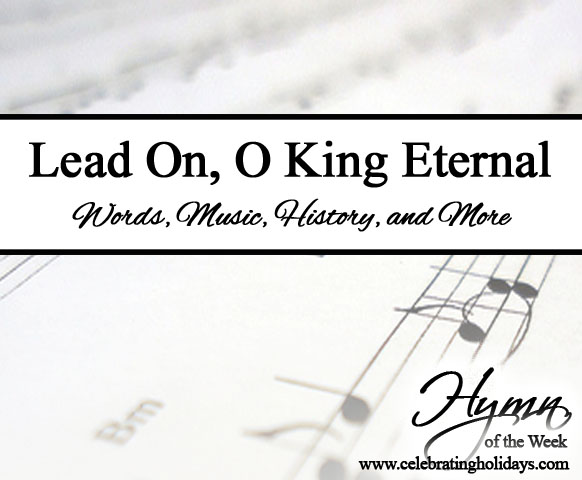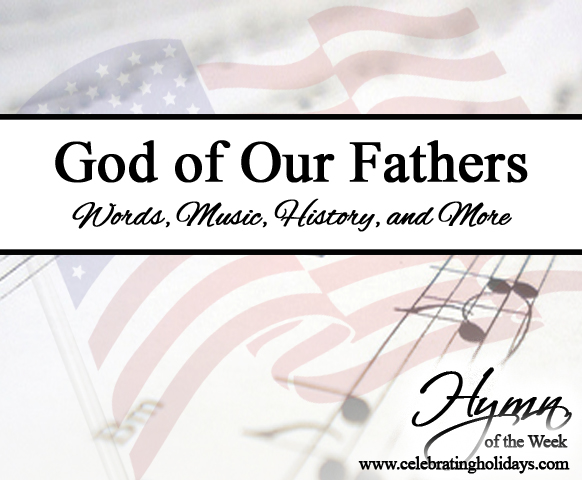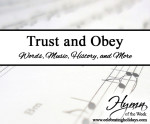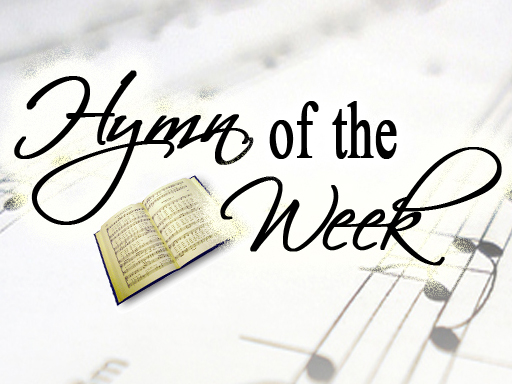Come, Ye Thankful People, Come
This page includes a lyric video, history, sheet music, and other resources for the classic hymn “Come, Ye Thankful People, Come.” Enjoy!
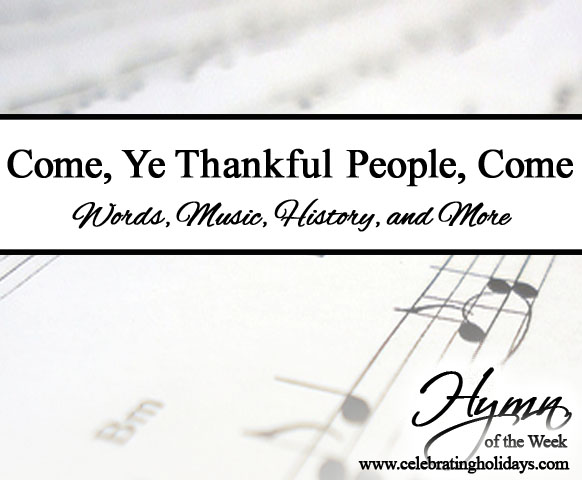
Enjoy this You Tube video, performed by Hymn Charts, with lyrics for “Come, Ye Thankful People, Come”:
History of “Come, Ye Thankful People, Come”
Words by Henry Alford (1810-1871), Published in 1844
Henry Alford was born in England to a family “that boasted five consecutive generations of clergymen.”1 When he was 16 years old, he wrote the following in his Bible:
“I do this day in the presence of God and my own soul renew my covenant with God and solemnly determine henceforth to become his and to do his work as far as in me lies.”2
Henry did in fact dedicate his whole life to ministry. He graduated with honors from Trinity College, Cambridge in 1832 and was ordained in the Church of England in 1833.3 He started as an assistant pastor to his father and later became the lead pastor at a church in Leicestershire (where he served 18 years). He went on to serve at churches in London and Canterbury right up until his death.
Not only was Henry a pastor and hymn writer, he was a reputable scholar. During the course of his life, “he held several important [academic] appointments, including that of a Fellow of Trinity, and the Hulsean Lectureship.”4 He produced literary works on Homer and on English poetry. However, his most famous work was his commentary on the Greek New Testament which was the result of 20 years labor5 and “was recognized as the standard critical commentary of the late nineteenth century.”6
“Come, Ye Thankful People, Come,” Henry’s best known hymn, first appeared in his collection titled Psalms and Hymns, 1844. After considerable revision, he published the song again in his Year of Praise, 1867 and his Poetical Works, 1868.7
Tune “St. George’s Windsor” by George Job Elvey (1816-1893), Published in 1858
George was born in England to a musical family. As a boy, he was trained as a chorister at Canterbury Cathedral. He went on to receive formal instruction at the Royal Academy of Music, and by the age of seventeen, George had become an organist of unusual talent.8 At the age of nineteen, George was hired as the organist at St. George’s Chapel, Windsor, the home church of the royal family. He served there for forty-seven years and had the opportunity to play for many special services involving the royal family. He was knighted in 1871 after writing the Festival March for the wedding of Princess Louise.9 George also composed large musical productions and many hymn tunes – one of his most famous being the music for “Crown Him with Many Crowns.”
The tune “St. George’s Windsor” was originally written for another hymn and first appeared in A Selection of Psalm and Hymn Tunes, 1858. The association with “Come, Ye Thankful People Come” is found in Hymns Ancient and Modern, 1861.10 The tune name comes from the church where Henry served faithfully for so many years.
Additional Resources for “Come, Ye Thankful People, Come”:
Sheet Music (PDF Compliments of Hymnary.org)
Guitar Chords (Links to Ultimate Guitar)
Visit Hymnary.org or Hymn Time.com for more on this hymn.
See our Hymn of the Week page for a list of the hymns that are included on this site.
This page was created by:

We welcome your ideas! If you have suggestions on how to improve this page, please contact us.
You may freely use this content if you cite the source and/or link back to this page.
Sources:
1 Hustad, Donald P. Dictionary Handbook to Hymns for the Living Church. Hope Publishing Company, 1978, p. 197.
2 Hymn Time, “Henry Alford.”
3 Julian, John, editor. Dictionary of Hymnology. Kregel Publications, 1985 (republished 1907 edition), p. 39.
4 Ibid.
5 Ibid.
6 Reynolds, William Jensen. Hymns of Our Faith: A Handbook for the Baptist Hymnal. Broadman Press, 1964, p. 240.
7 Erickson, J. Irving. Sing It Again! A Handbook on The Covenant Hymnal. Covenant Press, 1985, p. 219.
8 Reynolds, p. 287.
9 Ibid.
10 Ibid.
